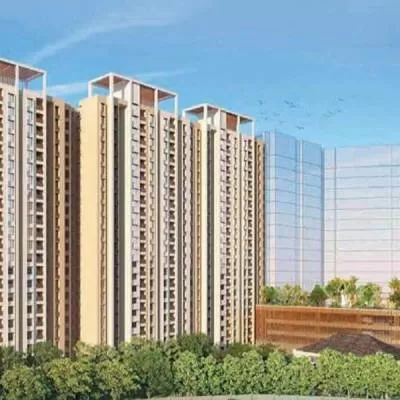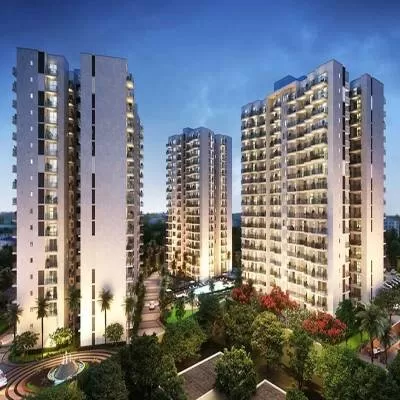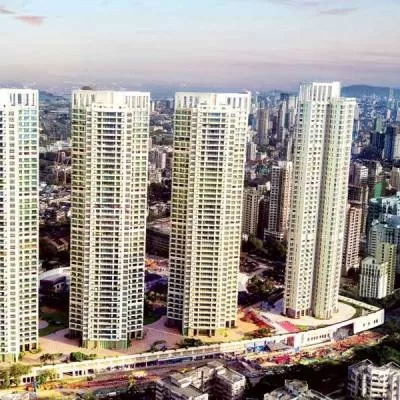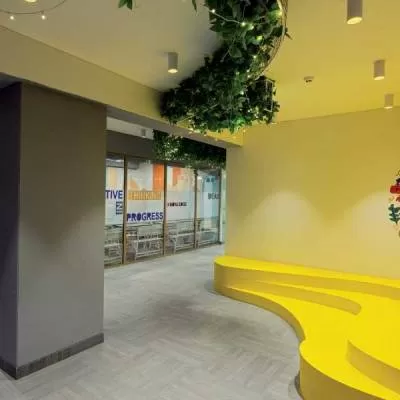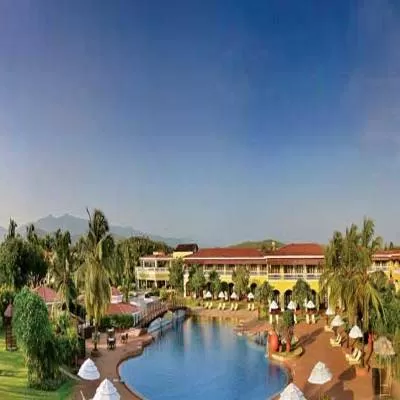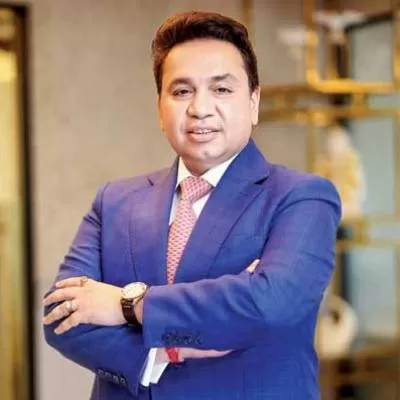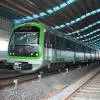- Home
- Real Estate
- Top Challengers of 2016-17

Top Challengers of 2016-17
Growth is the only evidence of life! People aside, this axiom is equally applicable in the corporate world. However, growth is easier said than done, especially in today's challenging times. And we believe that those who are able to successfully overcome these challenges deserve the accolade of 'Top Challenger'. After analysing the universe of construction and contracting, engineering, building materials and cement, we have identified these remarkable companies who have been able to overcome obstacles on the macro and micro fronts, in an environment fraught with economic difficulties, a changing governance canvas and lack of viability on financial closure.
Here's how we chose them: We followed a rigorous method by focusing on parameters such as net sales, profit before depreciation interest and tax (PBDIT) and net profit-after-tax (PAT). While sales figures are important as they reflect how the demand for products or services is moving, PBDIT figures guide us on how the company is doing in terms of operations and efficiency. As for net profit, it clearly shows how much is left for shareholders. Further, we have observed whether these companies have risked their debt profile or leveraged too much and, hence, parameters like long and short-term borrowings have been examined. We have also analysed cash generation and investments of the company. The companies that have managed to show the ability to grow have proven themselves true challengers showing their mettle in a difficult economic environment.
As stated earlier, we have ranked the companies on three parameters: Net sales, PBDIT and net profit. We have selected companies that have shown improvement in at least two of the above. However, if the company has managed to show an increase in sales but failed to show improvement in PBDIT and net profit, it has not been considered. Further, to come out with real, large challengers, we only considered companies with a market capitalisation of over Rs 500 crore able to post a profit in FY17. As most of the companies have not conducted their annual general meetings, we have sourced data from the annual figures announced by them following March 2017.
We have made a few adjustments, like for companies with fiscal closing other than March 2017, the trailing eight quarter financial performances were considered. Companies that have not yet announced the March 2017 quarter results have not been considered. Apart from this, a few organisations chose not to participate in this process, and hence, do not figure in the list.
With regard to the ranking, we provided a weighted average to three parameters: 40 per cent to sales, being a prime growth driver; and 30 per cent each to PBDIT and PAT. After ranking the companies on growth in percentage terms (FY17 over FY16), the rankings were provided with weightages. This process helped us rationalise the ranking process. In some cases, we offered the selection panel the right to veto by adhering to qualitative factors. The final list is an extensive one and the panel has taken into account almost all aspects that needed to be considered. That said, we have refrained from ranking them as the purpose was to choose the companies that have braved the odds from diverse sectors.
Please raise a toast to our Top Challengers!
SECTOR: EQUIPMENT
ACTION CONSTRUCTION EQUIPMENT (ACE)
'We hope to be at 70-80 per cent capacity utilisation in one to two years.'

- Pradeep Sharma, President, ACE
Offering a diverse portfolio of products covering all segments of construction, earthmoving, material handling and agriculture, ACE believes in innovation to achieve excellence. 'The importance of R&D and innovation in terms of appropriate product technology at right pricing, product customisation for different applications, product reliability, and post-sales support in terms of parts, service and training have been major catalysts for our top-line growth,' says Pradeep Sharma, President, ACE. A market leader in cranes, the company is fully equipped to cater to markets with the segments into which it has forayed in the past five to seven years. Further, as Sharma says, 'Scaling up our market share in earthmoving and road construction equipment and growing our agriculture business would further enable the company to improve both its top line and bottom line significantly without much CAPEX in the next couple of years.' For ACE, a focused strategy of responding with speed and expertise has been the most important factor in its growth.

What's more, the company is geared up to multiply its growth as the market improves. 'Overall, we are operating at about 30-40 per cent of installed capacities,' shares Sharma. 'With the market turning around, we hope to be at 70-80 per cent capacity utilisation in the next one to two years.'
SECTOR: TILES/CERAMIC/SANITARYWARE
ASIAN GRANITO INDIA
'AGIL is increasing its number of showrooms across India.'

- Kamlesh Patel, Chairman & Managing Director, Asian Granito India
Gujarat-based Asian Granito India (AGIL) is one of India's leading ceramic companies engaged in the manufacture and trade of ceramic wall, floor and vitrified tiles, and marble and quartz. With eight manufacturing facilities in Gujarat, AGIL has a production capacity of 100,000 sq m per day including outsourcing.

The company strengthened its presence in the retail market, launched high-end, value-added tiles, and expanded in the foreign markets as its key growth areas for 2016-2017. Having shifted its focus from the B2B to B2C segment, the company has aggressive retail expansion plans. 'We have always been a competitive and quality-driven tile manufacturer,' says Kamlesh Patel, Chairman & Managing Director, Asian Granito India. 'We have strengthened our brand through periodic introduction of tiles of different sizes, textures and finishes. Last fiscal, we concluded amalgamation with a tile manufacturing company that will enrich our brand, positioning and portfolio further.'
Showrooms are part of the company's strategy to increase its retail sales through direct interaction with customers. 'With over 144 company showrooms, AGIL is aggressively increasing its number of showrooms across the country,' adds Patel. The company currently has a strong dealer and sub-dealer network pan India, which it plans to grow multifold in the next two to three years.
SECTOR: CONSTRUCTION
DILIP BUILDCON (DBL)
'Our focus will be on completing projects in time.'

- Devendra Jain, Director & CEO, Dilip Buildcon
With about 78.44 per cent continuous YoY growth in the past four years, EPC developer Dilip Buildcon (DBL) is involved in the development of infrastructure projects across the country in diverse areas, such as roads and bridges, water sanitation and sewage, irrigation, industry, and commercial and residential buildings.
Devendra Jain, Director & CEO, Dilip Buildcon, says, 'DBL's top line has been increasing for the past two years and we are confident about growth this year as well.' Commenting on laws such as the GST and challenges like land acquisition, he says, 'We have an in-house team to deal with such challenges, and we work as per the conditions of the government. For the impact of GST, we have approached government officers to provide us clarity at the earliest.'

For DBL, undertaking the HAM model is a key decision made in FY16-17. 'For the three HAM projects bagged by the company under the Karnataka Road Development Corporation, work is under progress with 75 per cent complete,' shares Jain. 'This apart, we have been awarded seven HAM projects by NHAI.' As for the coming year, he asserts that the focus will be on completing projects in time.
SECTOR: CONSTRUCTION
GAYATRI PROJECTS
'We are continuing on our strategy of asset-light growth.'

- TV Sandeep Reddy, Promoter and Managing Director, Gayatri Projects Gayatri Projects is a diversified infrastructure major, with interests in EPC, highways and power plants. Its EPC operations include roads, bridges, railways, dams, irrigation canals, underground mines, steel plants and power plants. 'We are continuing on our strategy of asset-light growth that leverages our core competence in EPC,' says TV Sandeep Reddy, Promoter and Managing Director, Gayatri Projects. 'For the top line, we have continued to rack up road and highway projects that provide robust revenue and reasonable profitability. And for bottom line growth, we are trying to diversify into underground mining and water supply, where competition is low and profitability high.

' The company has been hiring the best technical and management teams for its new divisions - mining, water distribution and urban infrastructure - who have helped it secure high margins. 'We have been cautious about entering new developments such as HAM highways,' adds Reddy. He is bullish on the government's push for GST and the Aadhar digital India stack, which he believes will do wonders to streamline the business landscape. 'We have appointed consultants to train our organisation on these new initiatives and plan to make best use of them,' he shares. Additionally, the company is deploying Internet of Things to better manage and execute projects - all its plants, trucks, machinery and equipment in five major highway projects are being tracked with smart devices.
SECTOR: STEEL
JSW STEEL
'JSW increased its focus on the exports market.'

- Seshagiri Rao MVS, Joint Managing Director & Group CFO, JSW Steel
JSW Steel is one of India's leading integrated steel manufacturers with a capacity of 18 mtpa. In FY16-17, the company faced a host of challenges. Yet, it charted out a counter strategy to weather the storm. Seshagiri Rao MVS, Joint Managing Director & Group CFO, JSW Steel, says, 'While maintaining supplies to the OEM segment on home turf, JSW increased its focus on the exports market. Thus, while the overall sales volumes grew by 20 per cent, exports grew at 153 per cent. The share of exports in the total steel sales volume vaulted from 12 per cent in FY2015-16 to 26 per cent in FY2016-17.' Further, penetration of branded products in the retail segment was increased and, hence, the share of branded steel in the retail kitty moved up to 49 per cent compared to 45 per cent last year.

An important decision for the company last fiscal was to dynamically change the raw material mix to optimise cost and increase exports to take advantage of better realisations. For 2017-18, it has embarked upon the digital journey to reduce costs and improve productivity of both man and machine. As Rao shares, 'In terms of top line growth in FY2016-17, we have guided for production of 16.5 mt and sales of 15.5 mt - a growth of 4.4 per cent and 4.9 per cent over last year.' Also, the focus will be to start operations at two out of five iron-ore mines that the company has successfully bid for, which will further reduce costs.
SECTOR: STEEL
KALYANI STEELS 'In FY2017-18, we will continue to focus on niche segments.'

- RK Goyal, Managing Director, Kalyani Steels
Kalyani Steels (KSL) is among the leading Indian producers of forging and engineering quality carbon and alloy steel long products. FY2016-17 has been a challenging year for the Indian steel industry. One major area was the substantial increase in prices of iron ore and coke - the main raw materials for the steel industry. 'In such an environment, our strategy to sustain our quality leadership and focus on niche segments helped us protect our volumes and realisations,' says RK Goyal, Managing Director, Kalyani Steels. 'Our continuous focus on reducing costs by achieving better energy-efficiency, increasing equipment productivity and reducing and recycling plant wastes helped improve our bottom line.' While continuous focus on improving quality and productivity has helped KSL in improving its market position; it has also curtailed operating costs so that the impact of raw material cost rise was less severe for KSL than it was for competitors.

Having chalked out a roadmap for product approvals and new product development with major OEMs in domestic and international spaces, Goyal says, 'In FY2017-18, we will continue to focus on niche segments such as critical components in automotive and engineering industries, where the product range is less susceptible to global market fluctuations.' Moreover, the company will focus on improving service levels and close coordination with all stakeholders.
SECTOR: CONSTRUCTION
MAN INFRACONSTRUCTION
'We will increasingly look at strengthening our EPC pipeline.'

- Parag Shah, Managing Director, Man Infraconstruction
Man Infra is an integrated EPC company with execution capabilities in the ports and residential and commercial building construction segments. As on March 31, 2017, the company had an EPC order book of Rs 590 crore.
With one of the major challenges for most infrastructure companies being the legacy of stalled projects, most construction companies faced a situation of stretched working capital cycles and inadequate cash-flows. Parag Shah, Managing Director, Man Infraconstruction, says, 'We concentrated on streamlining our business strategy and operations with a focus on maintaining liquidity and profitability. We executed orders in hand, scouted for prudent EPC opportunities, and restrained from adding multiple projects where the risk-return was unfavorable.'

As on March 31, 2017, Man Infra completed three residential development projects in Mumbai. 'Our efforts and investments over the past years have started showing results,' adds Shah.
'Our ability to capitalise on prevailing and best-fit opportunities has helped us grow the top line and bottom line.' Over the next few years, the company aims to construct and monetise about 7.5 million sq ft of its ongoing or upcoming real-estate projects to have a robust growth trajectory.
'We will increasingly look at strengthening our EPC pipeline by taking projects that align with our core philosophy of capital conservation and profitability,' he concludes.
SECTOR: CONSTRUCTION
MEP INFRASTRUCTURE DEVELOPERS
'We have been able to maintain the balance between OMT and HAM projects.'

- Jayant D Mhaiskar, Vice Chairman & Managing Director, MEP Infrastructure Developers
Mumbai-based MEP Infrastructure Developers is a well-known name in the toll or operate-maintain-transfer (OMT) space. And now, the company has also bagged projects for road construction under HAM. 'The primary reason for venturing into construction is quality and type of asset,' says Jayant D Mhaiskar, Vice-Chairman & Managing Director, MEP Infrastructure Developers. 'In 2016-17, we have not only successfully bagged six HAM projects but achieved financial closure for them. We have also received appointed dates for four of the six projects, where construction has commenced.'

Speaking on the key contributing factors to growth, Mhaiskar points out to the company's main line of business - the current scheme in terms of tolling or OMT projects -that the company will continue with. 'We have been able to maintain the balance between OMT and HAM projects,' he adds. That said, the company's focus is more towards conservative than aggressive growth 'to maintain and sustain growth as well as profitability.'
As for FY17-18, the company looks forward to actively bidding for HAM projects. 'We will also look at projects under the toll-operate-transfer (TOT) model, for which we are actively looking to bid for as a standalone company or with a JV partner,' shares Mhaiskar.
SECTOR: CEMENT
SANGHI INDUSTRIES
'We have controlled cost to maintain margins'

- Alok Sanghi, Director, Sanghi Industries
Sanghi Industries (SIL) produces cement at one of the world's largest single-stream cement plants in Kutch, Gujarat. For Alok Sanghi, Director, Sanghi Industries, the cement industry's major challenge came after the demonetisation announcement. Demonetisation impacted demand from the real-estate segment, leading to a significant fall in cement prices in the last quarter of FY17. 'This impacted margins of almost all cement companies,' he says. 'However, prices recovered in first quarter of FY18.' He further adds that with demand from real estate being comparatively subdued for the past two years, the company has focused on government-led infrastructure projects. 'We have also controlled our costs through various measures that have helped maintain margins. Our realisation has improved as we are increasing the share of blended cement.'

The company's focus on controlling major costs - logistics and fuel - helped it improve profitability and maintain margins. And Sanghi adds, 'We are in the process of doubling our capacity from 4.1 million tonne to 8.2 million tonne in the next couple of years.' The company is investing in a waste heat recovery system, adding 13 MW of captive power capacity, and working on an alternative fuel feeding system to ensure environment conservation and cost control.
*Change in accounting year from July-June to April-March in 2015-16. Figures ending March 31, 2016 are 9-month figures, which cannot be compared with current 12-month figures. Also, profit not comparable as last year the company had incurred one time net expenses of Rs 60.39 crore as part of prepayment to lenders.
SECTOR: TILES/CERAMIC/SANITARYWARE
SOMANY CERAMICS
'We avoided taking on any new projects in the fiscal.'

- Abhishek Somany, Managing Director, Somany Ceramics
Be it ceramic, vitrified, glazed vitrified, imported tiles, or sanitaryware or bath fittings, Somany Ceramics prides itself in being at the forefront of style and quality. 'Our portfolio offers modern and technologically-advanced products that simplify lives of consumers,' says Abhishek Somany, Managing Director, Somany Ceramics.
'We have invested in adapting to the changes the category demands and bringing in innovations based on market research and consumer preferences.'

Somany further lists factors that helped in the company's growth as: Focus on value-added products; new plant for GVT in Kassar; increased focus on sanitaryware; increased focus on brand-building; and deeper coverage of smaller towns and addition of dealers and exclusive showrooms. The company avoided taking on any new projects in the fiscal, and kept debt under check.
With an extensive distribution network comprising 15,000-plus touch points across the country, Somany Ceramics has been strategically working to build a strong retail presence through over 300 franchisee showrooms and company-owned experience centres. 'We are constantly exploring opportunities to adapt to changing consumer preferences,' adds Somany. 'Having launched Somany Wood Essentia (faux wood tiles), we will soon launch our most premium range of tiles, inspired by nature, and plan to launch many more exciting products this year.'
The
TOP CHALLENGERS
of 2016-17
ACTION CONSTRUCTION EQUIPMENT
SECTOR: EQUIPMENT
ASIAN GRANITO INDIA
SECTOR: TILES/CERAMIC/SANITARYWARE
DILIP BUILDCON
SECTOR: CONSTRUCTION
GAYATRI PROJECTS
SECTOR: CONSTRUCTION
JSW STEEL
SECTOR: STEEL
KALYANI STEELS
SECTOR: STEEL
MAN INFRACONSTRUCTION
SECTOR: CONSTRUCTION
MEP INFRASTRUCTURE DEVELOPERS
SECTOR: CONSTRUCTION
SANGHI INDUSTRIES
SECTOR: CEMENT
SOMANY CERAMICS
SECTOR: TILES/CERAMIC/SANITARYWARE
When the going gets tough, the tough gets going. In a tradition that dates back years, CW handpicks the top challengers from the construction and allied sectors that have managed to post growth despite an adverse economic and sectoral scenario. Growth is the only evidence of life! People aside, this axiom is equally applicable in the corporate world. However, growth is easier said than done, especially in today's challenging times. And we believe that those who are able to successfully overcome these challenges deserve the accolade of 'Top Challenger'. After analysing the universe of construction and contracting, engineering, building materials and cement, we have identified these remarkable companies who have been able to overcome obstacles on the macro and micro fronts, in an environment fraught with economic difficulties, a changing governance canvas and lack of viability on financial closure. Here's how we chose them: We followed a rigorous method by focusing on parameters such as net sales, profit before depreciation interest and tax (PBDIT) and net profit-after-tax (PAT). While sales figures are important as they reflect how the demand for products or services is moving, PBDIT figures guide us on how the company is doing in terms of operations and efficiency. As for net profit, it clearly shows how much is left for shareholders. Further, we have observed whether these companies have risked their debt profile or leveraged too much and, hence, parameters like long and short-term borrowings have been examined. We have also analysed cash generation and investments of the company. The companies that have managed to show the ability to grow have proven themselves true challengers showing their mettle in a difficult economic environment. As stated earlier, we have ranked the companies on three parameters: Net sales, PBDIT and net profit. We have selected companies that have shown improvement in at least two of the above. However, if the company has managed to show an increase in sales but failed to show improvement in PBDIT and net profit, it has not been considered. Further, to come out with real, large challengers, we only considered companies with a market capitalisation of over Rs 500 crore able to post a profit in FY17. As most of the companies have not conducted their annual general meetings, we have sourced data from the annual figures announced by them following March 2017. We have made a few adjustments, like for companies with fiscal closing other than March 2017, the trailing eight quarter financial performances were considered. Companies that have not yet announced the March 2017 quarter results have not been considered. Apart from this, a few organisations chose not to participate in this process, and hence, do not figure in the list. With regard to the ranking, we provided a weighted average to three parameters: 40 per cent to sales, being a prime growth driver; and 30 per cent each to PBDIT and PAT. After ranking the companies on growth in percentage terms (FY17 over FY16), the rankings were provided with weightages. This process helped us rationalise the ranking process. In some cases, we offered the selection panel the right to veto by adhering to qualitative factors. The final list is an extensive one and the panel has taken into account almost all aspects that needed to be considered. That said, we have refrained from ranking them as the purpose was to choose the companies that have braved the odds from diverse sectors. Please raise a toast to our Top Challengers! SECTOR: EQUIPMENT ACTION CONSTRUCTION EQUIPMENT (ACE) 'We hope to be at 70-80 per cent capacity utilisation in one to two years.' - Pradeep Sharma, President, ACE Offering a diverse portfolio of products covering all segments of construction, earthmoving, material handling and agriculture, ACE believes in innovation to achieve excellence. 'The importance of R&D and innovation in terms of appropriate product technology at right pricing, product customisation for different applications, product reliability, and post-sales support in terms of parts, service and training have been major catalysts for our top-line growth,' says Pradeep Sharma, President, ACE. A market leader in cranes, the company is fully equipped to cater to markets with the segments into which it has forayed in the past five to seven years. Further, as Sharma says, 'Scaling up our market share in earthmoving and road construction equipment and growing our agriculture business would further enable the company to improve both its top line and bottom line significantly without much CAPEX in the next couple of years.' For ACE, a focused strategy of responding with speed and expertise has been the most important factor in its growth. What's more, the company is geared up to multiply its growth as the market improves. 'Overall, we are operating at about 30-40 per cent of installed capacities,' shares Sharma. 'With the market turning around, we hope to be at 70-80 per cent capacity utilisation in the next one to two years.' SECTOR: TILES/CERAMIC/SANITARYWARE ASIAN GRANITO INDIA 'AGIL is increasing its number of showrooms across India.' - Kamlesh Patel, Chairman & Managing Director, Asian Granito India Gujarat-based Asian Granito India (AGIL) is one of India's leading ceramic companies engaged in the manufacture and trade of ceramic wall, floor and vitrified tiles, and marble and quartz. With eight manufacturing facilities in Gujarat, AGIL has a production capacity of 100,000 sq m per day including outsourcing. The company strengthened its presence in the retail market, launched high-end, value-added tiles, and expanded in the foreign markets as its key growth areas for 2016-2017. Having shifted its focus from the B2B to B2C segment, the company has aggressive retail expansion plans. 'We have always been a competitive and quality-driven tile manufacturer,' says Kamlesh Patel, Chairman & Managing Director, Asian Granito India. 'We have strengthened our brand through periodic introduction of tiles of different sizes, textures and finishes. Last fiscal, we concluded amalgamation with a tile manufacturing company that will enrich our brand, positioning and portfolio further.' Showrooms are part of the company's strategy to increase its retail sales through direct interaction with customers. 'With over 144 company showrooms, AGIL is aggressively increasing its number of showrooms across the country,' adds Patel. The company currently has a strong dealer and sub-dealer network pan India, which it plans to grow multifold in the next two to three years. SECTOR: CONSTRUCTION DILIP BUILDCON (DBL) 'Our focus will be on completing projects in time.' - Devendra Jain, Director & CEO, Dilip Buildcon With about 78.44 per cent continuous YoY growth in the past four years, EPC developer Dilip Buildcon (DBL) is involved in the development of infrastructure projects across the country in diverse areas, such as roads and bridges, water sanitation and sewage, irrigation, industry, and commercial and residential buildings. Devendra Jain, Director & CEO, Dilip Buildcon, says, 'DBL's top line has been increasing for the past two years and we are confident about growth this year as well.' Commenting on laws such as the GST and challenges like land acquisition, he says, 'We have an in-house team to deal with such challenges, and we work as per the conditions of the government. For the impact of GST, we have approached government officers to provide us clarity at the earliest.' For DBL, undertaking the HAM model is a key decision made in FY16-17. 'For the three HAM projects bagged by the company under the Karnataka Road Development Corporation, work is under progress with 75 per cent complete,' shares Jain. 'This apart, we have been awarded seven HAM projects by NHAI.' As for the coming year, he asserts that the focus will be on completing projects in time. SECTOR: CONSTRUCTION GAYATRI PROJECTS 'We are continuing on our strategy of asset-light growth.' - TV Sandeep Reddy, Promoter and Managing Director, Gayatri Projects Gayatri Projects is a diversified infrastructure major, with interests in EPC, highways and power plants. Its EPC operations include roads, bridges, railways, dams, irrigation canals, underground mines, steel plants and power plants. 'We are continuing on our strategy of asset-light growth that leverages our core competence in EPC,' says TV Sandeep Reddy, Promoter and Managing Director, Gayatri Projects. 'For the top line, we have continued to rack up road and highway projects that provide robust revenue and reasonable profitability. And for bottom line growth, we are trying to diversify into underground mining and water supply, where competition is low and profitability high. ' The company has been hiring the best technical and management teams for its new divisions - mining, water distribution and urban infrastructure - who have helped it secure high margins. 'We have been cautious about entering new developments such as HAM highways,' adds Reddy. He is bullish on the government's push for GST and the Aadhar digital India stack, which he believes will do wonders to streamline the business landscape. 'We have appointed consultants to train our organisation on these new initiatives and plan to make best use of them,' he shares. Additionally, the company is deploying Internet of Things to better manage and execute projects - all its plants, trucks, machinery and equipment in five major highway projects are being tracked with smart devices. SECTOR: STEEL JSW STEEL 'JSW increased its focus on the exports market.' - Seshagiri Rao MVS, Joint Managing Director & Group CFO, JSW Steel JSW Steel is one of India's leading integrated steel manufacturers with a capacity of 18 mtpa. In FY16-17, the company faced a host of challenges. Yet, it charted out a counter strategy to weather the storm. Seshagiri Rao MVS, Joint Managing Director & Group CFO, JSW Steel, says, 'While maintaining supplies to the OEM segment on home turf, JSW increased its focus on the exports market. Thus, while the overall sales volumes grew by 20 per cent, exports grew at 153 per cent. The share of exports in the total steel sales volume vaulted from 12 per cent in FY2015-16 to 26 per cent in FY2016-17.' Further, penetration of branded products in the retail segment was increased and, hence, the share of branded steel in the retail kitty moved up to 49 per cent compared to 45 per cent last year. An important decision for the company last fiscal was to dynamically change the raw material mix to optimise cost and increase exports to take advantage of better realisations. For 2017-18, it has embarked upon the digital journey to reduce costs and improve productivity of both man and machine. As Rao shares, 'In terms of top line growth in FY2016-17, we have guided for production of 16.5 mt and sales of 15.5 mt - a growth of 4.4 per cent and 4.9 per cent over last year.' Also, the focus will be to start operations at two out of five iron-ore mines that the company has successfully bid for, which will further reduce costs. SECTOR: STEEL KALYANI STEELS 'In FY2017-18, we will continue to focus on niche segments.' - RK Goyal, Managing Director, Kalyani Steels Kalyani Steels (KSL) is among the leading Indian producers of forging and engineering quality carbon and alloy steel long products. FY2016-17 has been a challenging year for the Indian steel industry. One major area was the substantial increase in prices of iron ore and coke - the main raw materials for the steel industry. 'In such an environment, our strategy to sustain our quality leadership and focus on niche segments helped us protect our volumes and realisations,' says RK Goyal, Managing Director, Kalyani Steels. 'Our continuous focus on reducing costs by achieving better energy-efficiency, increasing equipment productivity and reducing and recycling plant wastes helped improve our bottom line.' While continuous focus on improving quality and productivity has helped KSL in improving its market position; it has also curtailed operating costs so that the impact of raw material cost rise was less severe for KSL than it was for competitors. Having chalked out a roadmap for product approvals and new product development with major OEMs in domestic and international spaces, Goyal says, 'In FY2017-18, we will continue to focus on niche segments such as critical components in automotive and engineering industries, where the product range is less susceptible to global market fluctuations.' Moreover, the company will focus on improving service levels and close coordination with all stakeholders. SECTOR: CONSTRUCTION MAN INFRACONSTRUCTION 'We will increasingly look at strengthening our EPC pipeline.' - Parag Shah, Managing Director, Man Infraconstruction Man Infra is an integrated EPC company with execution capabilities in the ports and residential and commercial building construction segments. As on March 31, 2017, the company had an EPC order book of Rs 590 crore. With one of the major challenges for most infrastructure companies being the legacy of stalled projects, most construction companies faced a situation of stretched working capital cycles and inadequate cash-flows. Parag Shah, Managing Director, Man Infraconstruction, says, 'We concentrated on streamlining our business strategy and operations with a focus on maintaining liquidity and profitability. We executed orders in hand, scouted for prudent EPC opportunities, and restrained from adding multiple projects where the risk-return was unfavorable.' As on March 31, 2017, Man Infra completed three residential development projects in Mumbai. 'Our efforts and investments over the past years have started showing results,' adds Shah. 'Our ability to capitalise on prevailing and best-fit opportunities has helped us grow the top line and bottom line.' Over the next few years, the company aims to construct and monetise about 7.5 million sq ft of its ongoing or upcoming real-estate projects to have a robust growth trajectory. 'We will increasingly look at strengthening our EPC pipeline by taking projects that align with our core philosophy of capital conservation and profitability,' he concludes. SECTOR: CONSTRUCTION MEP INFRASTRUCTURE DEVELOPERS 'We have been able to maintain the balance between OMT and HAM projects.' - Jayant D Mhaiskar, Vice Chairman & Managing Director, MEP Infrastructure Developers Mumbai-based MEP Infrastructure Developers is a well-known name in the toll or operate-maintain-transfer (OMT) space. And now, the company has also bagged projects for road construction under HAM. 'The primary reason for venturing into construction is quality and type of asset,' says Jayant D Mhaiskar, Vice-Chairman & Managing Director, MEP Infrastructure Developers. 'In 2016-17, we have not only successfully bagged six HAM projects but achieved financial closure for them. We have also received appointed dates for four of the six projects, where construction has commenced.' Speaking on the key contributing factors to growth, Mhaiskar points out to the company's main line of business - the current scheme in terms of tolling or OMT projects -that the company will continue with. 'We have been able to maintain the balance between OMT and HAM projects,' he adds. That said, the company's focus is more towards conservative than aggressive growth 'to maintain and sustain growth as well as profitability.' As for FY17-18, the company looks forward to actively bidding for HAM projects. 'We will also look at projects under the toll-operate-transfer (TOT) model, for which we are actively looking to bid for as a standalone company or with a JV partner,' shares Mhaiskar. SECTOR: CEMENT SANGHI INDUSTRIES 'We have controlled cost to maintain margins' - Alok Sanghi, Director, Sanghi Industries Sanghi Industries (SIL) produces cement at one of the world's largest single-stream cement plants in Kutch, Gujarat. For Alok Sanghi, Director, Sanghi Industries, the cement industry's major challenge came after the demonetisation announcement. Demonetisation impacted demand from the real-estate segment, leading to a significant fall in cement prices in the last quarter of FY17. 'This impacted margins of almost all cement companies,' he says. 'However, prices recovered in first quarter of FY18.' He further adds that with demand from real estate being comparatively subdued for the past two years, the company has focused on government-led infrastructure projects. 'We have also controlled our costs through various measures that have helped maintain margins. Our realisation has improved as we are increasing the share of blended cement.' The company's focus on controlling major costs - logistics and fuel - helped it improve profitability and maintain margins. And Sanghi adds, 'We are in the process of doubling our capacity from 4.1 million tonne to 8.2 million tonne in the next couple of years.' The company is investing in a waste heat recovery system, adding 13 MW of captive power capacity, and working on an alternative fuel feeding system to ensure environment conservation and cost control. *Change in accounting year from July-June to April-March in 2015-16. Figures ending March 31, 2016 are 9-month figures, which cannot be compared with current 12-month figures. Also, profit not comparable as last year the company had incurred one time net expenses of Rs 60.39 crore as part of prepayment to lenders. SECTOR: TILES/CERAMIC/SANITARYWARE SOMANY CERAMICS 'We avoided taking on any new projects in the fiscal.' - Abhishek Somany, Managing Director, Somany Ceramics Be it ceramic, vitrified, glazed vitrified, imported tiles, or sanitaryware or bath fittings, Somany Ceramics prides itself in being at the forefront of style and quality. 'Our portfolio offers modern and technologically-advanced products that simplify lives of consumers,' says Abhishek Somany, Managing Director, Somany Ceramics. 'We have invested in adapting to the changes the category demands and bringing in innovations based on market research and consumer preferences.' Somany further lists factors that helped in the company's growth as: Focus on value-added products; new plant for GVT in Kassar; increased focus on sanitaryware; increased focus on brand-building; and deeper coverage of smaller towns and addition of dealers and exclusive showrooms. The company avoided taking on any new projects in the fiscal, and kept debt under check. With an extensive distribution network comprising 15,000-plus touch points across the country, Somany Ceramics has been strategically working to build a strong retail presence through over 300 franchisee showrooms and company-owned experience centres. 'We are constantly exploring opportunities to adapt to changing consumer preferences,' adds Somany. 'Having launched Somany Wood Essentia (faux wood tiles), we will soon launch our most premium range of tiles, inspired by nature, and plan to launch many more exciting products this year.' The TOP CHALLENGERS of 2016-17 ACTION CONSTRUCTION EQUIPMENT SECTOR: EQUIPMENT ASIAN GRANITO INDIA SECTOR: TILES/CERAMIC/SANITARYWARE DILIP BUILDCON SECTOR: CONSTRUCTION GAYATRI PROJECTS SECTOR: CONSTRUCTION JSW STEEL SECTOR: STEEL KALYANI STEELS SECTOR: STEEL MAN INFRACONSTRUCTION SECTOR: CONSTRUCTION MEP INFRASTRUCTURE DEVELOPERS SECTOR: CONSTRUCTION SANGHI INDUSTRIES SECTOR: CEMENT SOMANY CERAMICS SECTOR: TILES/CERAMIC/SANITARYWARE To share your views, write in at feedback@ConstructionWorld.in


